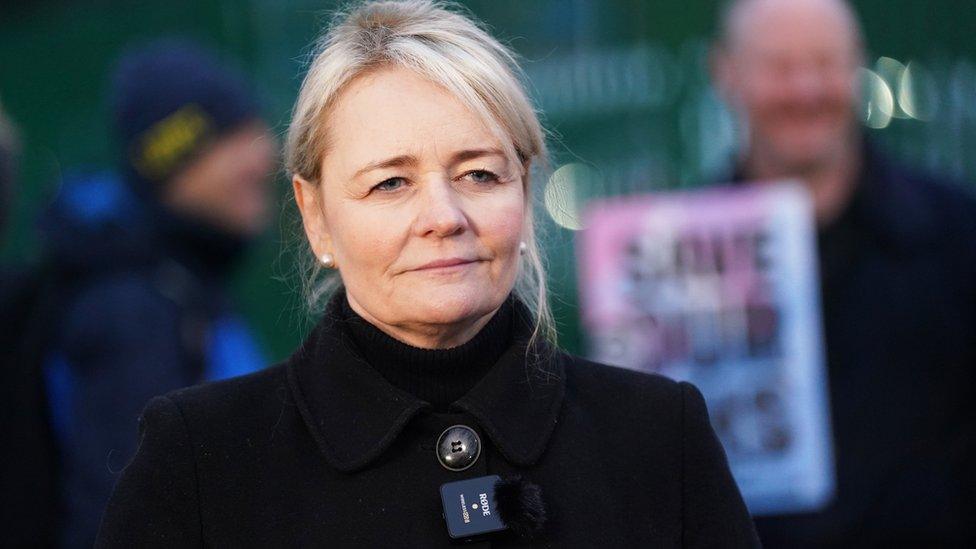Labour conference votes to nationalise energy
- Published
- comments

The motion passed with few votes against it
Labour's leadership has lost a showdown over the party's approach to nationalising critical infrastructure.
Delegates voted for a motion, proposed by Labour's largest backer, the union Unite, to "reaffirm" the party's commitment to public ownership of railways and the energy industry.
Labour must "make different choices", Unite's general secretary said.
Party sources said the proposals are unlikely to get into Labour's next manifesto.
The shadow business secretary Jonathan Reynolds told the BBC: "We're not going to nationalise the energy system."
Asked if they would follow the vote, he said: "No."
Mr Reynolds said votes reflected the interest of people at the conference - but that there would be disagreements in some areas.
Earlier in the day, Unite's Sharon Graham got a standing ovation from the conference floor for tabling the motion.
Making the case for renationalisation, Ms Graham said: "Labour's job is to be the voice of workers and our communities.
"We must take our energy back into public hands.
"In France, they own their own energy, which has meant lower bills for the French people, while in Britain we have let energy monopolies fill their boots by picking the pockets of UK workers. How they must have laughed."
'Huge victory'
The motion passed with only a handful of votes against it, and was backed by three major Labour backing unions - Unite, ASLEF and TSSA.
Momentum, the left-wing pressure group set up to support former leader Jeremy Corbyn, called the vote "a huge victory - and a clear message to the leadership". "Trade unions and Labour members, like the public, overwhelmingly want our public services in public hands, not being run for profit."
Before the vote, Unite published a survey which found voters in seats known as the Red Wall - traditionally Labour areas where the Conservatives won in 2019 - were overwhelmingly in favour of putting energy utilities back into public ownership.
More than two-thirds of the 2,000 potential voters surveyed in those constituencies across the North, Midlands and Wales agreed that the UK's domestic energy industry should be in public ownership.
The motion also reaffirmed Labour's commitment to build HS2 in full and to retain or reopen fully-staffed rail ticket offices.
On Thursday, Labour Leader Sir Keir Starmer said he could not commit to building HS2's northern leg after the government "took a wrecking ball" to the project's finances.
Policy voted on by conference feeds into Labour's National Policy Forum, which debates and finalises Labour's policy.
The party's current policy include a commitment to public ownership of different industries - including renationalising the railways when contracts with existing operators expire or fail.
Labour have also promised to create GB Energy, a publicly owned national energy company that will compete with private industry and promote clean energy.
Related topics
- Published15 July 2023
